Letters from Wilfred Evans to his family, 1918 - Part 11
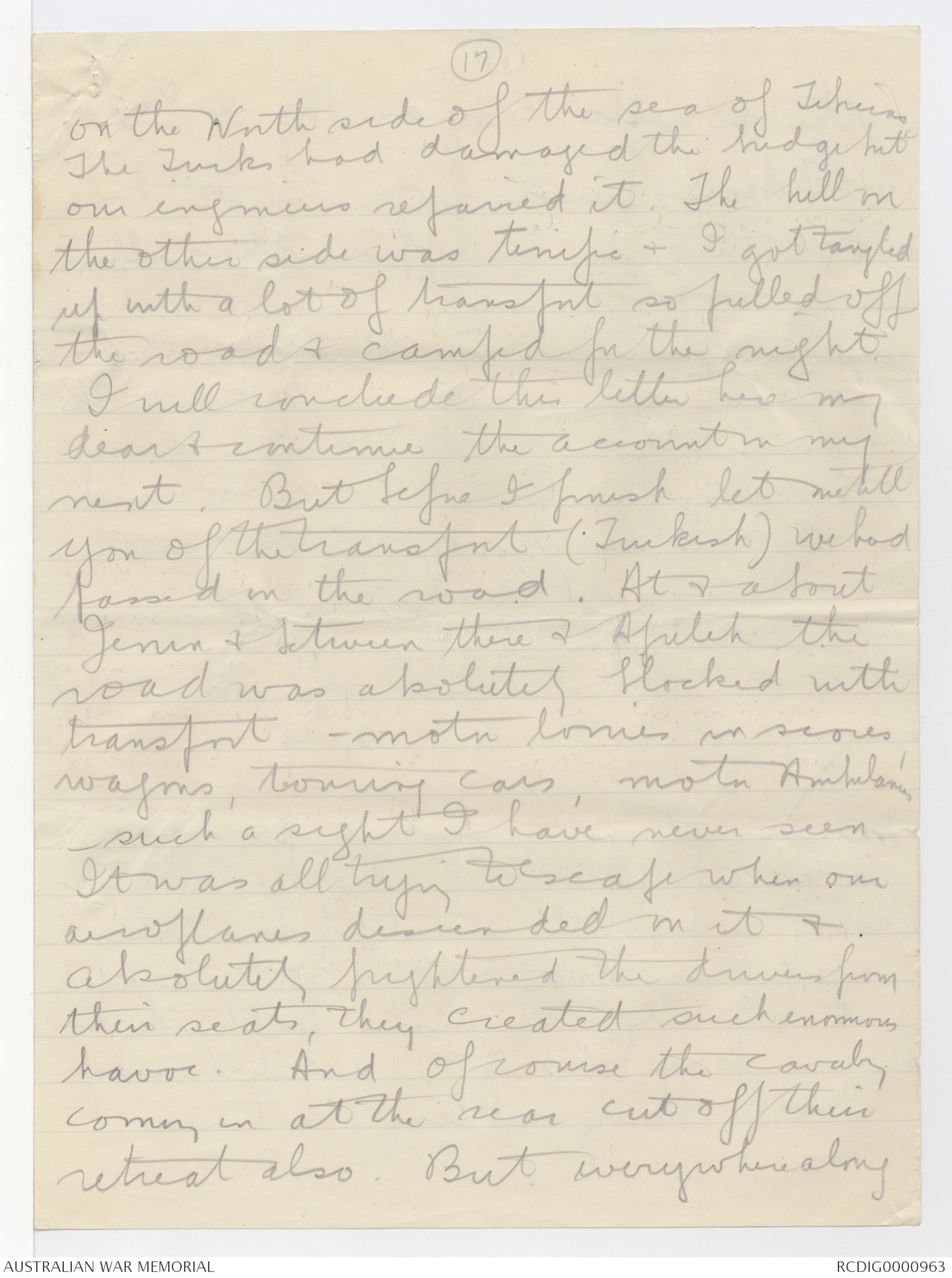
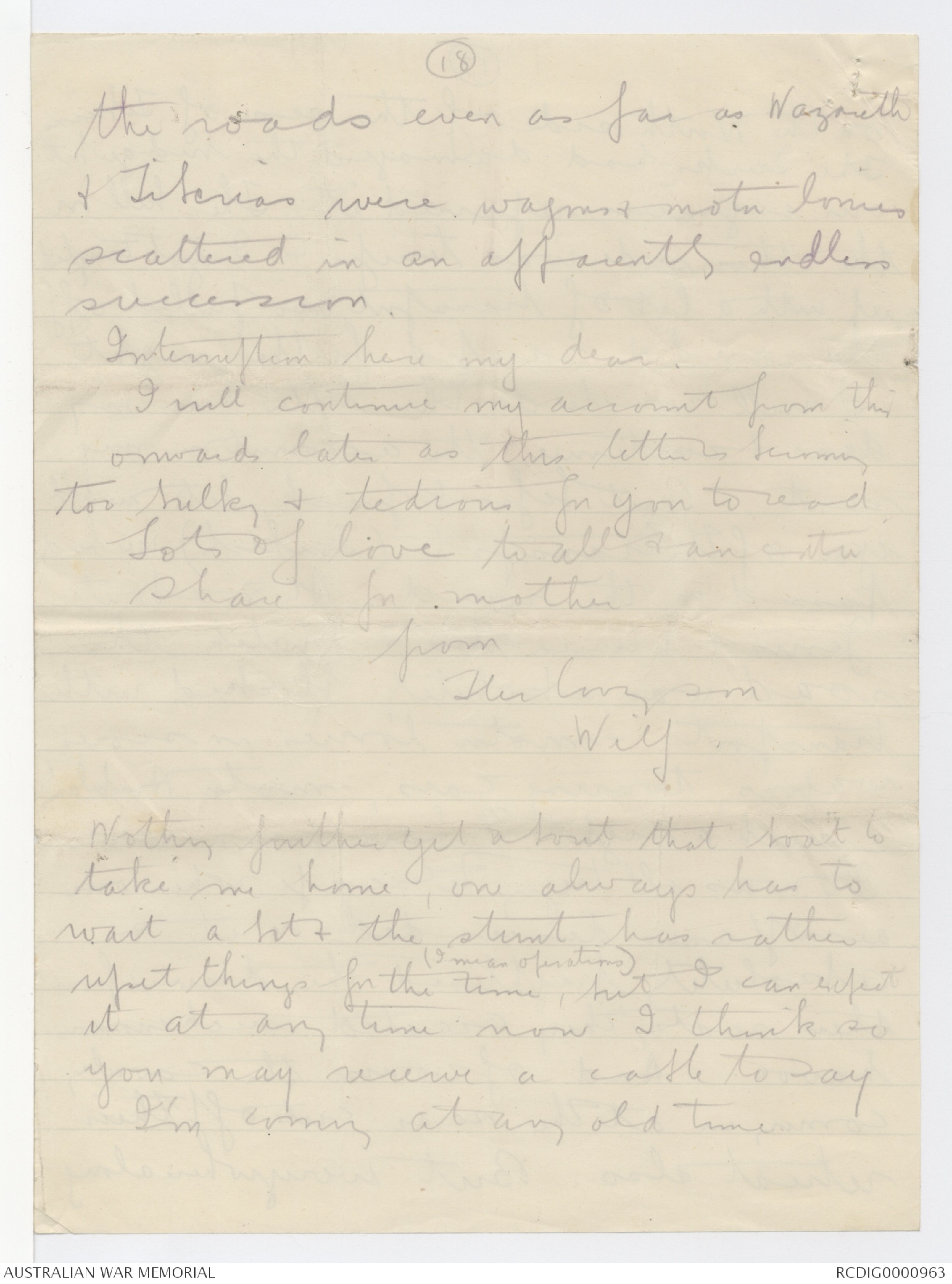
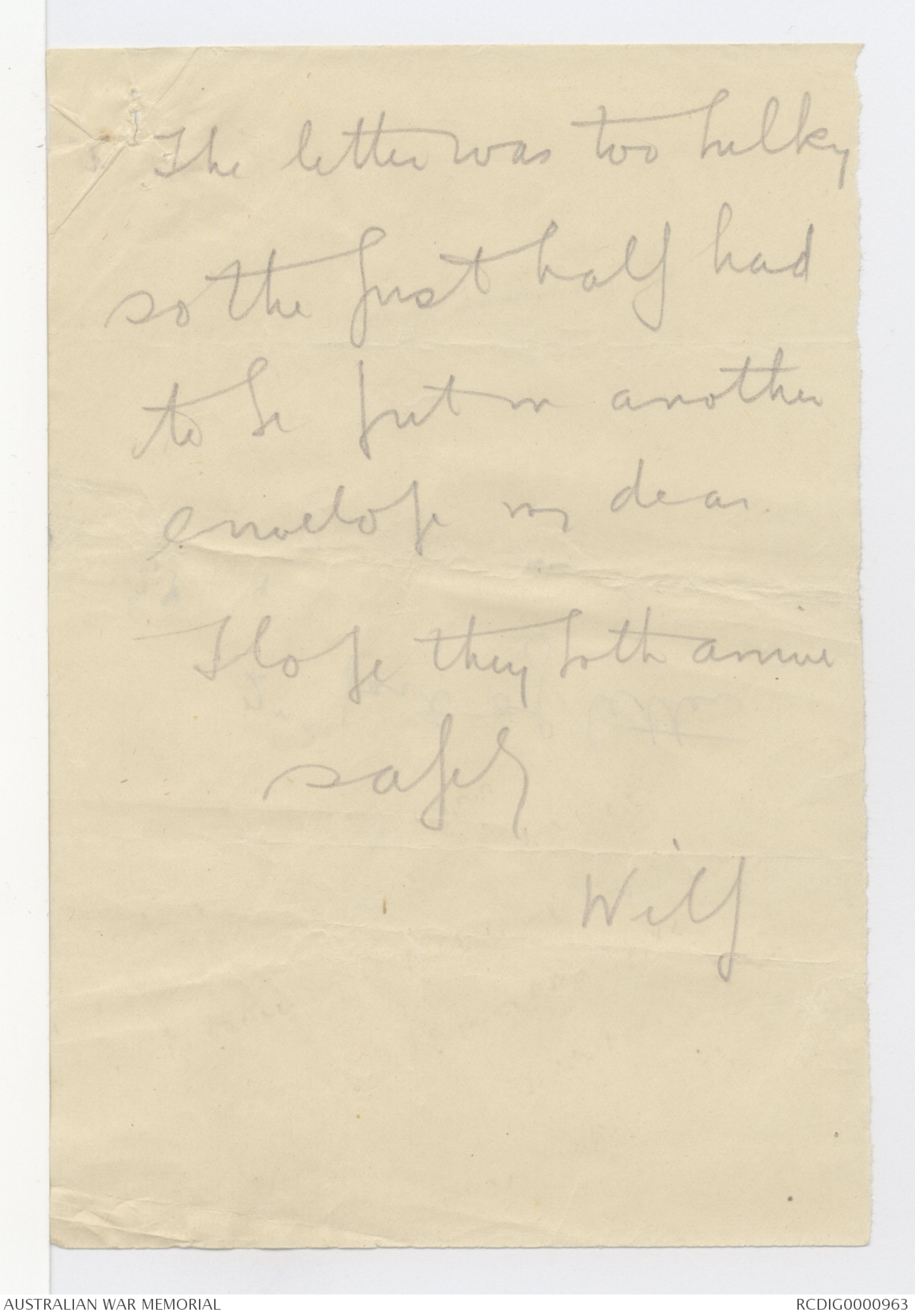
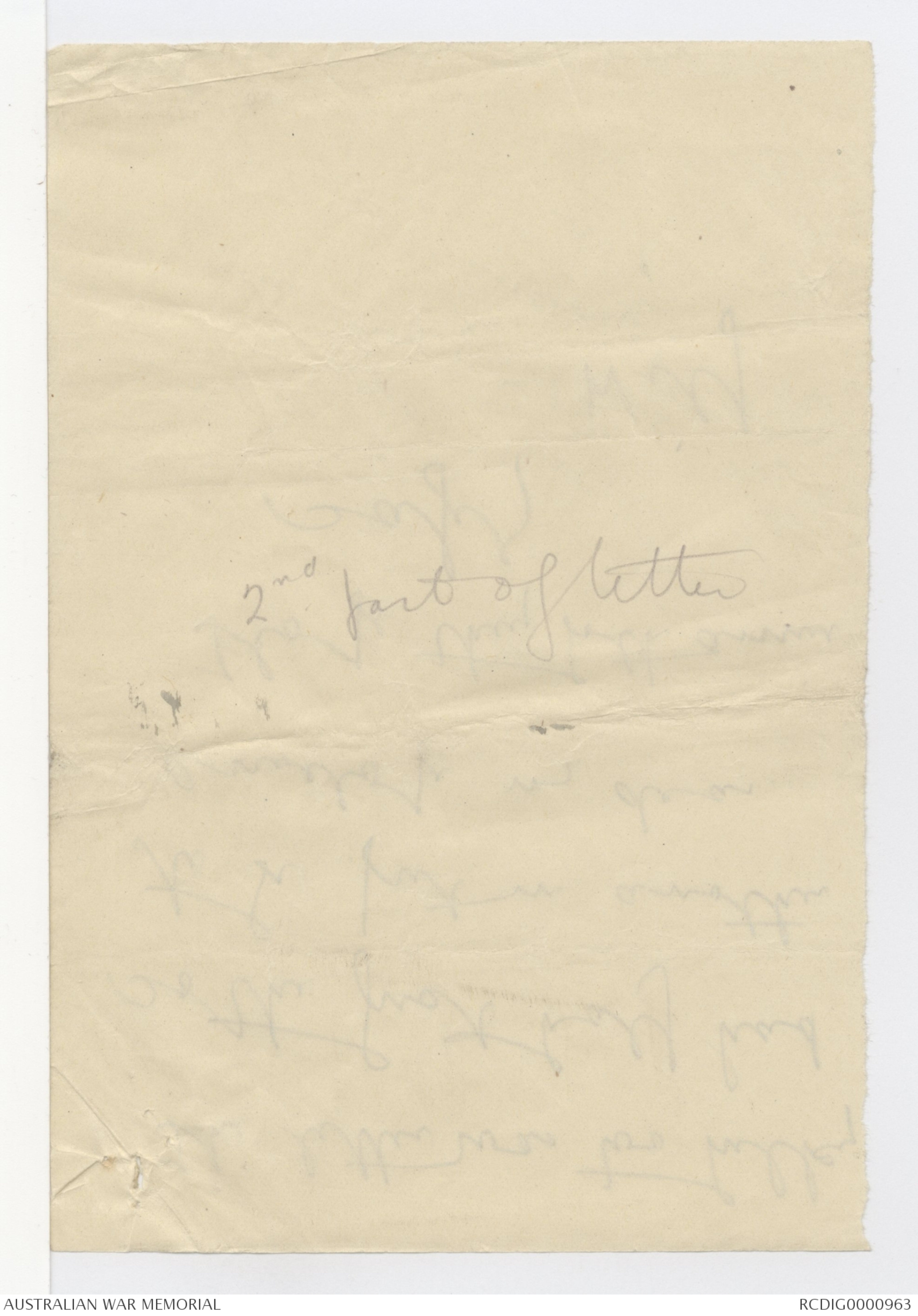
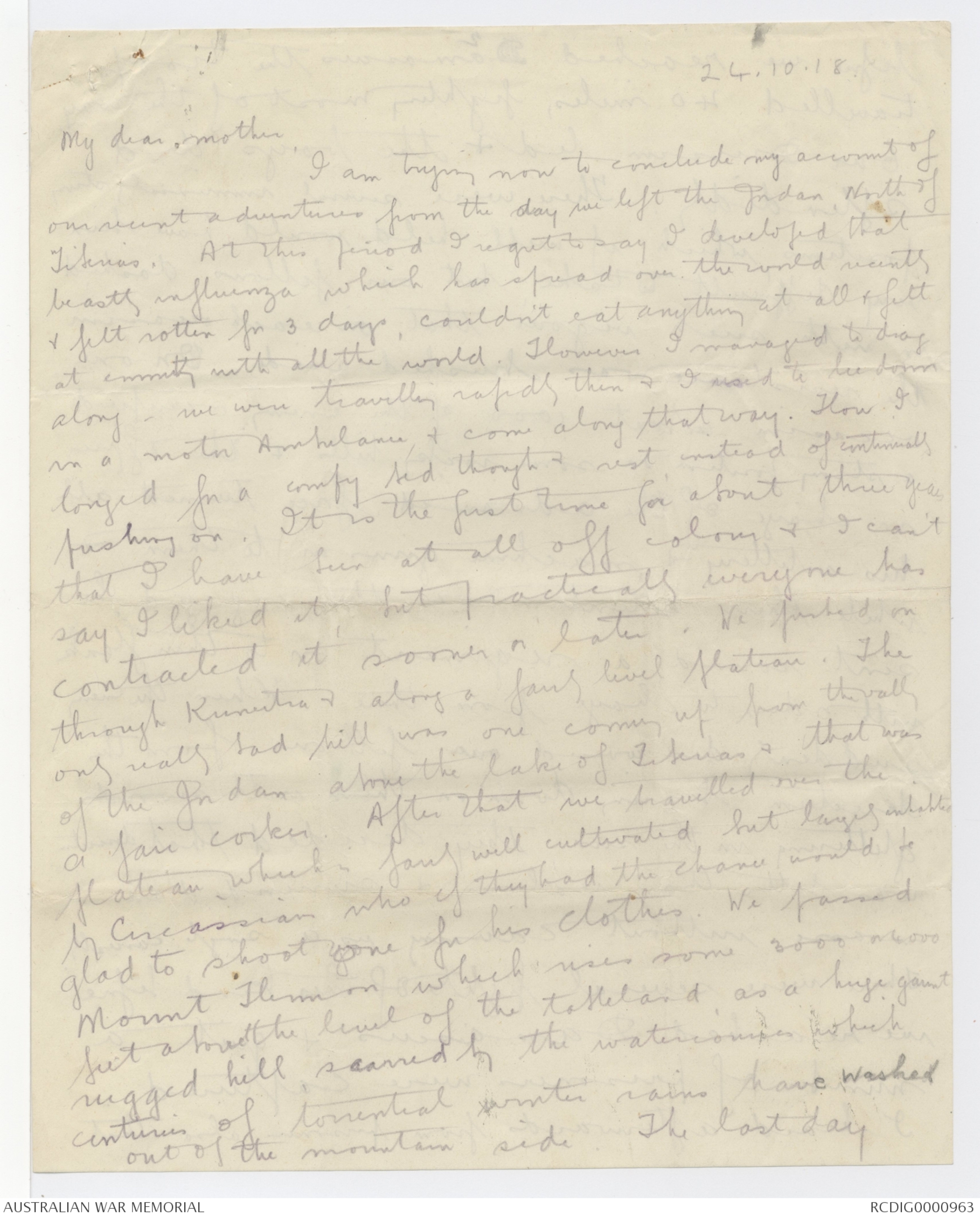
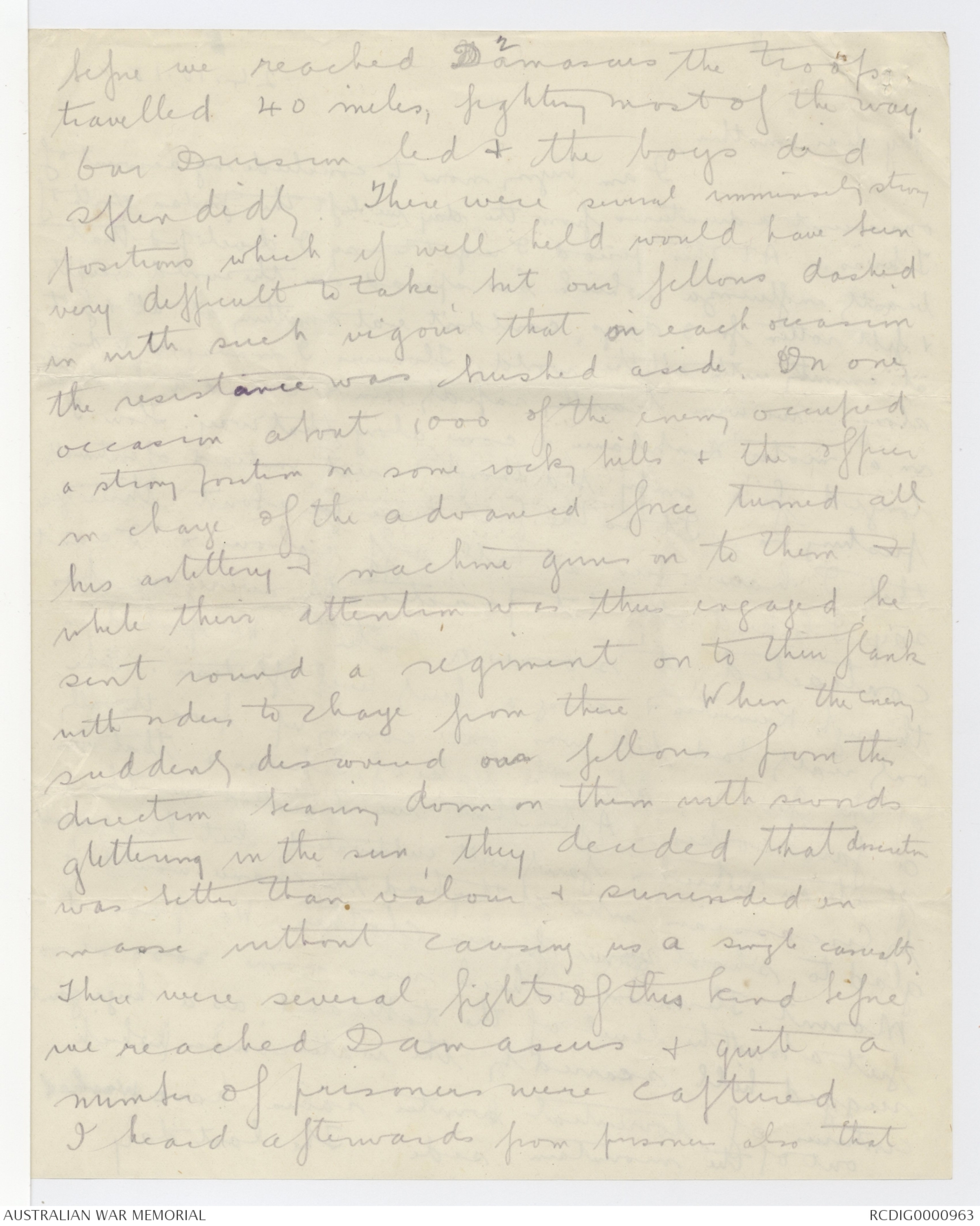
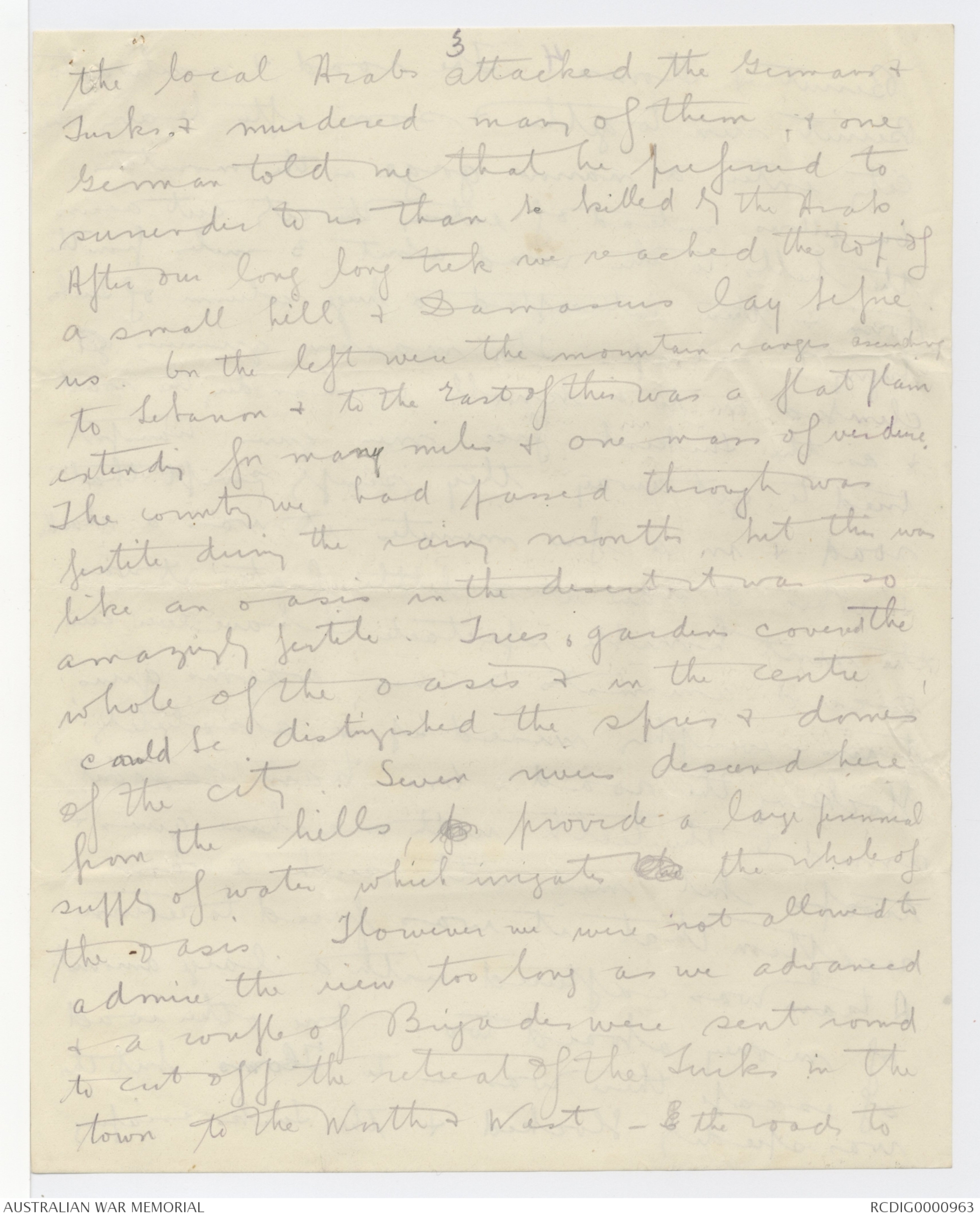
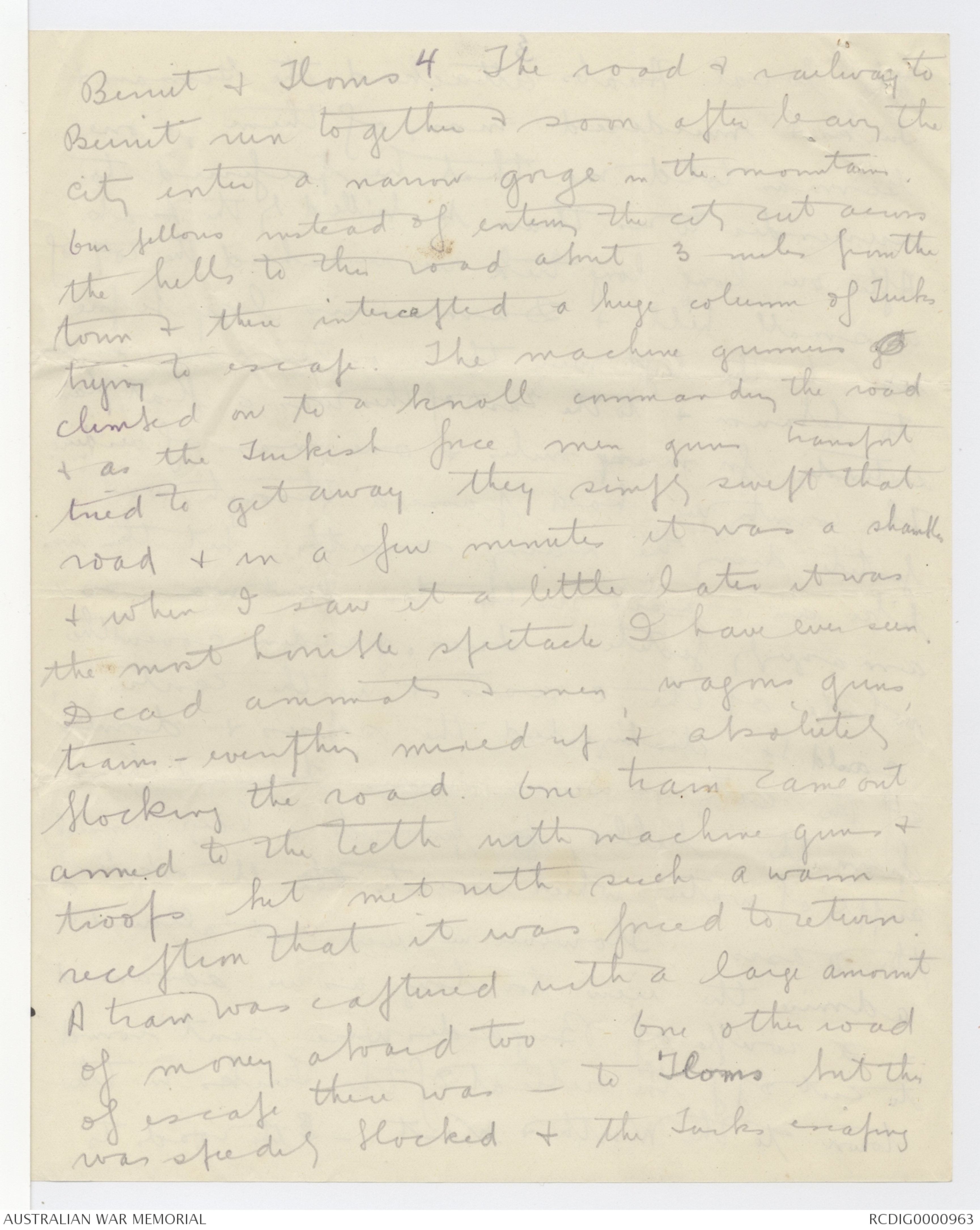
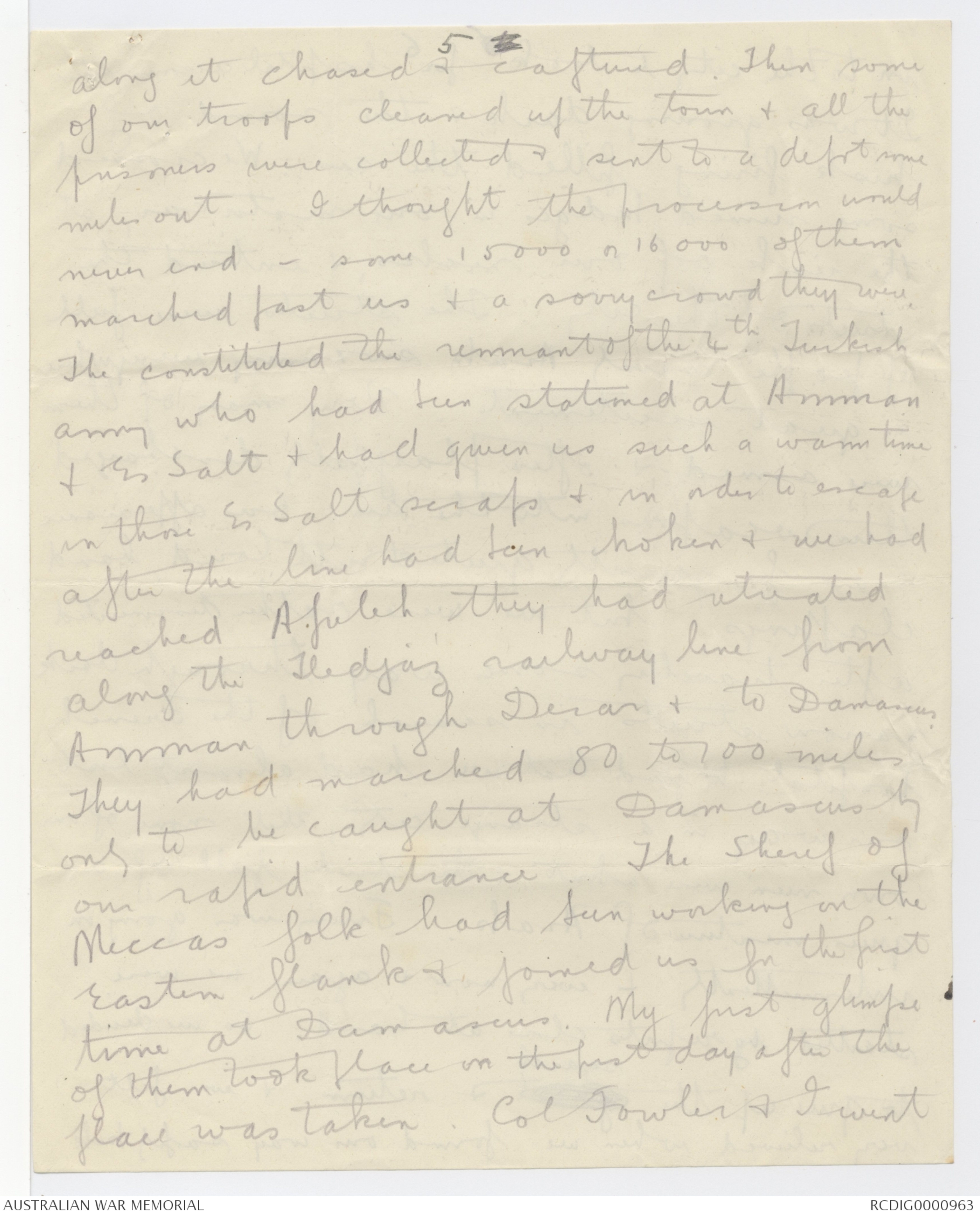
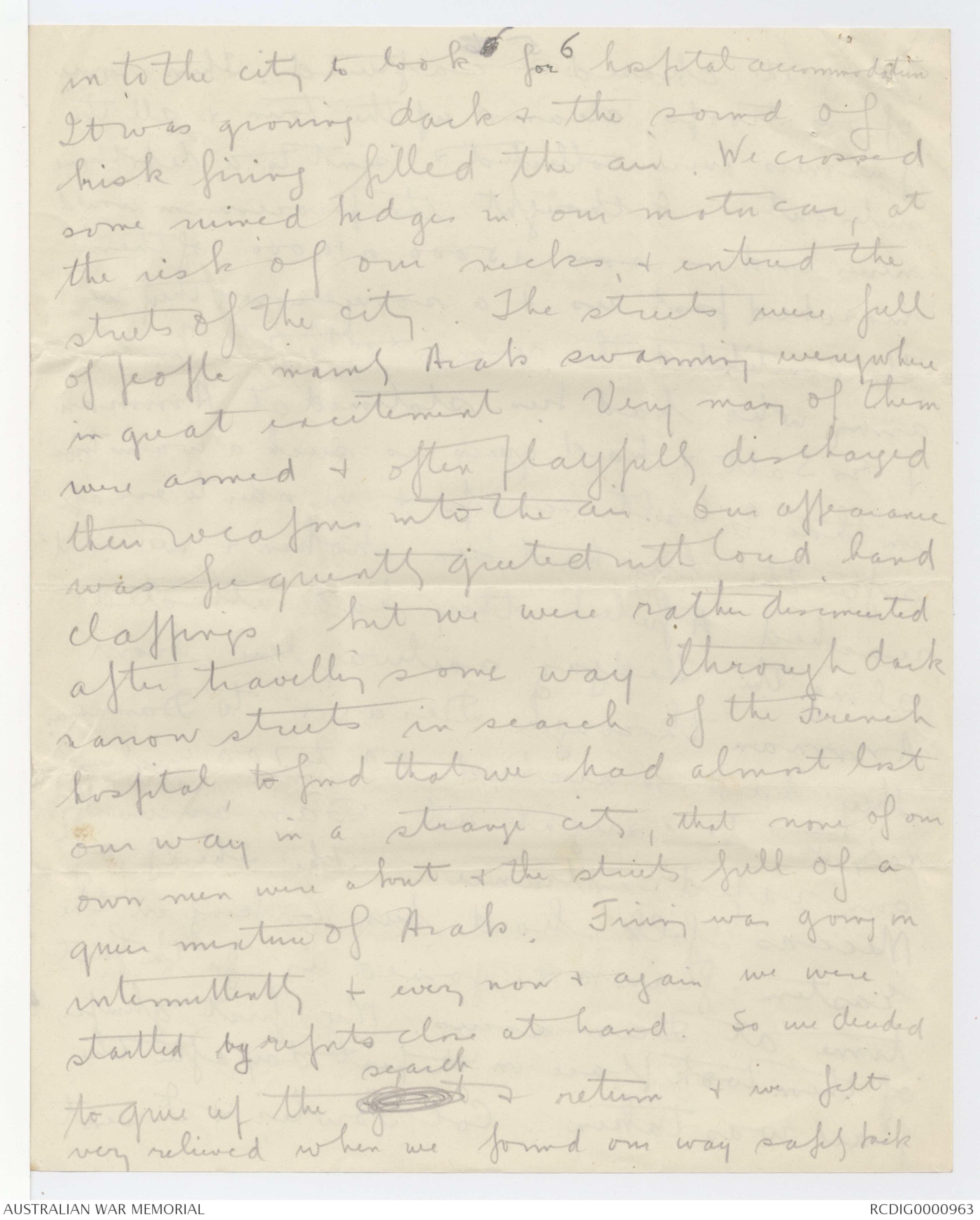
17
on the North side of the sea of Tiberias
The Turks had damaged the bridge but
our engineers repaired it. The hill on
the other side was terrific - I got tangled
up with a lot of transport so pulled off
the road & camped for the night.
I will conclude this letter here my
dear & continue the account in my
next. But before I finish let me tell
you of the transport (Turkish) we had
passed on the road. At & about
Jenin & between there & Afulah the
road was absolutely blocked with
transport - motor lorries in scores,
wagons, touring cars, motor Ambulances
-such a sight I have never seen.
It was all trying to escape when our
aeroplanes descended on it &
absolutely frightened the drivers from
their seats, they created such enormous
havoc. And of course the cavalry
coming in at the rear cut off their
retreat also. But everywhere along
18
the roads even as far as Nazareth
& Tiberias were wagons & motor lorries
scattered in an apparently endless
succession.
Interruption here my dear.
I will continue my account from this
onwards later as this letter is becoming
too bulky & tedious for you to read.
Lots of love to all & an extra
share for mother
from
Her loving son
Wilf
Nothing further yet about that boat to
take me home, one always has to
wait a bit & the stunt has rather
upset things for the time (I mean operations), but I can expect
it at any time now I think so
you may receive a cable to say
I'm coming at any old time
The letter was too bulky
so the first half had
to be put in another
envelope my dear.
Hope they both arrive
safely
Wilf
2nd part of letter
24.10.18.
My dear mother,
I am trying now to conclude my account of
our recent adventures from the day we left the Jordan, North of
Tiberias. At this period I regret to say I developed that
beastly influenza which has spread over the world recently
& felt rotten for 3 days, couldn't eat anything at all & felt
at enmity with all the world. However I managed to drag
along - we were travelling rapidly then & I used to lie down
in a motor Ambulance & come along that way. How I
longed for a comfy bed though & rest instead of continually
pushing on. It is the first time for about three years
that I have been at all off colour & I can't
say I liked it; but practically everyone has
contracted it sooner or later. We pushed on
through Kuneitra & along a fairly level plateau. The
only really bad hill was one coming up from the valley
of the Jordan above the lake of Tiberias & that was
a fair corker. After that we travelled over the
plateau which is fairly well cultivated but largely inhabited
by Circassians who if they had the chance would be
glad to shoot one for his clothes. We passed
Mount Hermon which rises some 3000 or 4000
feet above the level of the tableland, as a huge gaunt
rugged hill, scarred by the watercourses which
centuries of torrential winter rains have washed
out of the mountain side. The last day
2
before we reached Damascus the troops
travelled 40 miles, fighting most of the way.
Our Division led & the boys did
splendidly. There were several immensely strong
positions, which if well held would have been
very difficult to take, but our fellows dashed
in with such vigour that on each occasion
the resistance was brushed aside. On one
occasion about 1000 of the enemy occupied
a strong position on some rocky hills & the officer
in charge of the advanced force turned all
his artillery & machine guns on to them &
while their attention was thus engaged he
sent round a regiment on their flank
with orders to charge from there. When the enemy
suddenly discovered our fellows from this
direction bearing down on them with swords
glittering in the sun, they decided that discretion
was better than valour & surrendered en
masse without causing us a single casualty.
There were several fights of this kind before
we reached Damascus & quite a
number of prisoners were captured.
I heard afterwards from prisoners also that
3
the local Arabs attacked the Germans &
Turks & murdered many of them, & one
German told me that he preferred to
surrender to us than be killed by the Arabs.
After our long long trek we reached the top of
a small hill & Damascus lay before
us. On the left were the mountain ranges ascending
to Lebanon & to the East of this was a flat plain
extending for many miles & one mass of verdure.
The country we had passed through was
fertile during the rainy months but this was
like an oasis in the desert, it was so
amazingly fertile. Trees & gardens covered the
whole of the oasis & in the centre
could be distinguished the spires & domes
of the city. Seven rivers descend here
from the hills, for provide a large perennial
supply of water which irrigates the the whole of
the oasis. However we were not allowed to
admire the view too long as we advanced
& a couple of Brigades were sent round
to cut off the retreat of the Turks in the
town to the North & West - & the road to
4
Beirut & Homs. The road & railway to
Beirut run together & soon after leaving the
city enter a narrow gorge in the mountains.
Our fellows instead of entering the city cut across
the hills to this road about 3 miles from the
town & then intercepted a huge column of Turks
trying to escape. The machine gunners go
climbed on to a knoll commanding the road
& as the Turkish force men guns transport
tried to get away they simply swept that
road & in a few minutes it was a shambles
& when I saw it a little later it was
the most horrible spectacle I have ever seen.
Dead animals & men, wagons, guns,
trains - everything mixed up & absolutely
blocking the road. One train came out
armed to the teeth with machine guns &
troops but met with such a warm
reception that it was forced to return.
A train was captured with a large amount
of money aboard too. One other road
of escape there was - to Homs but this
was speedily blocked & the Turks escaping
5 6
along it chased & captured. Then some
of our troops cleaned up the town & all the
prisoners were collected & sent to a depot some
miles out. I thought the procession would
never end - some 15000 or 16000 of them
marched past us & a sorry crowd they were.
The constituted the remnant of the 4th Turkish
army who had been stationed at Amman
& Es Salt & had given us such a warm time
in those Es Salt scraps & in order to escape
after the line had been broken & we had
reached Afuleh they had retreated
along the Hedjaz railway line from
Amman through Desar & to Damascus.
They had marched 80 to 100 miles
only to be caught at Damascus by
our rapid entrance. The Sherif of
Meccas folk had been working on the
Eastern flank & joined us for the first
time at Damascus. My first glimpse
of them took place on the first day after the
place was taken. Col Fowler & I went
6
in to the city to look for hospital accommodation.
It was growing dark & the sound of
brisk firing filled the air. We crossed
some ruined bridges in our motor car, at
the risk of our necks, & entered the
streets of the city. The streets were full
of people mainly Arabs swarming everywhere
in great excitement. Very many of them
were armed & often playfully discharged
their weapons into the air. Our appearance
was frequently greeted with loud hand
clappings, but we were rather disconcerted
after travelling some way through dark
narrow streets in search of the French
hospital to find that we had almost lost
our way in a strange city, that none of our
own men were about & the streets full of a
queer mixture of Arabs. Firing was going on
intermittently & every now & again we were
startled by reports close at hand. So we decided
to give up the ghost search & return & we felt
very relieved when we found our way safely back
 Jacqueline Kennedy
Jacqueline KennedyThis transcription item is now locked to you for editing. To release the lock either Save your changes or Cancel.
This lock will be automatically released after 60 minutes of inactivity.